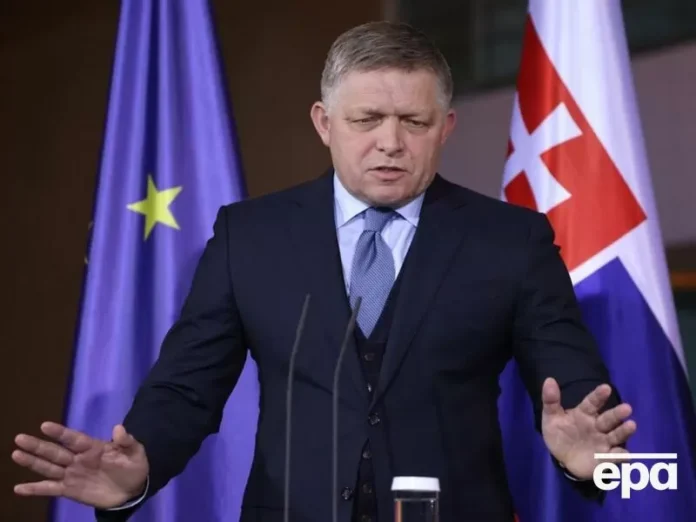Slovakia’s Prime Minister Robert Fico announced on February 20th that his country will not support the European Commission’s proposal to extend the free trade regime with Ukraine, unless measures are taken to protect Slovak farmers. Fico’s statement was reported by the Slovak News Agency (TASR).
Fico expressed concerns about the impact of the free trade agreement on Slovak farmers, stating that they are facing unfair competition from Ukrainian producers. He argued that the current agreement has resulted in a significant decrease in the prices of agricultural products, making it difficult for Slovak farmers to compete.
The Prime Minister emphasized the need for the European Commission to address the issue and provide adequate protection for Slovak farmers. He stated that Slovakia will not approve the extension of the free trade regime until concrete measures are taken to ensure a level playing field for its farmers.
Fico’s statement has caused a stir in the political arena, with some criticizing his decision as protectionist and potentially damaging to the relationship between Slovakia and Ukraine. However, others have supported Fico’s stance, stating that the government has a responsibility to protect its own citizens and their livelihoods.
This announcement comes amidst ongoing tensions between the European Union and Ukraine, as the EU has been pushing for deeper economic ties with its Eastern neighbor. Slovakia, which borders Ukraine, has been one of the major beneficiaries of the free trade agreement, with its exports to Ukraine increasing by 50% since the agreement was implemented in 2016.
However, Fico’s concerns highlight the potential downside of free trade agreements, especially for smaller and more vulnerable economies. Slovak farmers, who make up a significant portion of the country’s population, have been struggling to compete with subsidized agricultural products from Ukraine.
The European Commission has yet to respond to Fico’s statement, but it is likely that further negotiations will take place to address the issue. Both sides have a shared interest in maintaining a strong economic relationship, and finding a solution that satisfies both parties is crucial.
In the meantime, Fico’s decision has sparked a debate on the effectiveness of free trade agreements and the need for measures to protect domestic industries. It also highlights the importance of considering the impact of such agreements on all parties involved, rather than just focusing on the economic benefits.
Slovakia’s stance on the free trade agreement with Ukraine is a reminder that while free trade can bring many benefits, it is not a one-size-fits-all solution. The government has a responsibility to protect its citizens and their livelihoods, and it is essential to strike a balance between promoting economic growth and safeguarding the interests of domestic industries.
In conclusion, Prime Minister Fico’s decision not to support the extension of the free trade regime with Ukraine until measures are taken to protect Slovak farmers is a significant move. It highlights the need for a fair and balanced approach to free trade agreements, taking into consideration the interests of all parties involved. Hopefully, this issue will be addressed through further negotiations, and a mutually beneficial solution can be reached.

